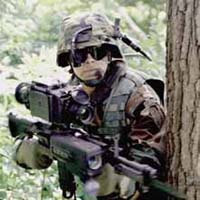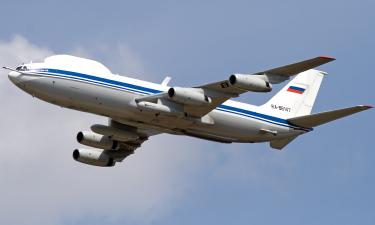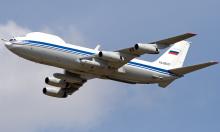New sensors to help soldiers of the future obtain photographic memory in combat
For many years scientists have been trying to create a perfect soldier, an ideal machine for killing. They have already tried to empower soldiers' muscles and sharpen theor feelings. Today the scientists moved in a completely different direction.

A soldier’s after-action mission report can sometimes leave out vital observations and experiences that could be valuable in planning future operations. The Defense Advanced Research Projects Agency (DARPA) is exploring the use of soldier-worn sensors and recorders to augment a soldier’s recall and reporting capability. The National Institute of Standards and Technology (NIST) is acting as an independent evaluator for the “Advanced Soldier Sensor Information System and Technology” (ASSIST) project. NIST researchers are designing tests to measure the technical capability of such information gathering devices
This week NIST is testing five different sensor systems at the United States Army Aberdeen Test Center in Aberdeen , Md. The tests, ending May 12, involve sensor-clad soldiers on unscripted foot patrol through simulated Iraqi villages populated with “bystanders,” “shopkeepers,” and “insurgents.” The sensors are expected to capture, classify and store such data as the sound of acceleration and deceleration of vehicles, images of people (including suspicious movements that might not be seen by the soldiers), speech and specific types of weapon fire.
A capacity to give GPS locations, an ability to translate Arabic signs and text into English, as well as on-command video recording also are being demonstrated in Aberdeen. Sensor system software is expected to extract keywords and create an indexed multimedia representation of information collected by different soldiers. For comparison purposes, the soldiers wearing the sensors will make an after-action report based on memory and then supplement that after-action report with information learned from the sensor data.
The Aberdeen tests end the first year of ASSIST’s approximately five-year development effort. The ASSIST plan envisions increasingly sophisticated data collection systems that can learn from experiences, improving performance with accumulated knowledge.
“Soldiers endure tremendous physical and psychological stresses which can make it difficult to remember details about what they experienced over prolonged missions,” said Craig Schlenoff, NIST’s ASSIST project coordinator. “We hope that ASSIST will keep our soldiers safer and increase the probability of mission success.”
Source: nist.gov
Prepared by Alexander Timoshik
Pravda.ru
Subscribe to Pravda.Ru Telegram channel, Facebook, RSS!




